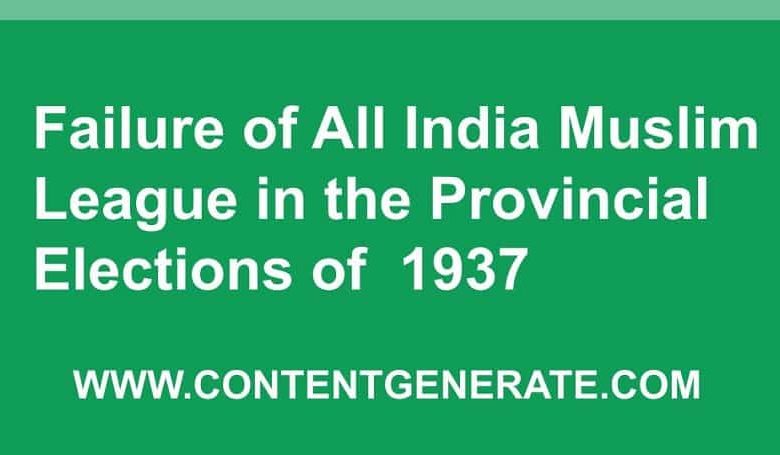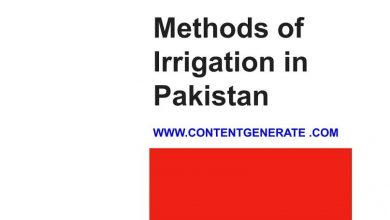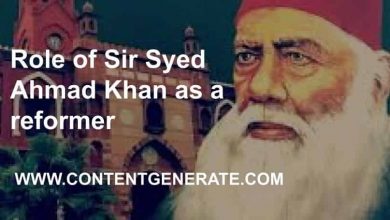Failure of Muslim League in 1937 Election

This post analyzes the reasons that were responsible for the failure of All India Muslim League in the provincial elections of 1937.
Contents
Background
Government of India Act 1935 provided representative government at the provincial level. As per this provision, the British held elections in provinces in February 1937 on the basis of separate electorates. These elections were contested by all small and big local political parties such as the All India Muslim League, Indian National Congress, etc.
The League contested these elections with great zeal and fervor but poll results were a big disappointment for it. There were 482 seats allocated for Muslims at the provincial level. The league managed to win only 109 Muslim seats out of 482 seats. In contrast, Indian National Congress won almost the majority of seats of both Hindus and Muslims and formed its government in the provinces.
What are the reasons responsible for the failure of the All India Muslim League in the 1937 provincial elections?
Reasons responsible for the failure of the All India Muslim League in the elections were as follows:
1. Image of the league
One of the reasons for the poor performance of the league in the elections was its image as a political party of the upper-class Muslims. The common Muslims saw the league leaders as aristocrats – landlords, businessmen, religious leaders. The majority of Muslims were poor who could not see a match with the leaders of the league in terms of socio-economic status.
Another reason cited by pro-league circles was the poverty and illiteracy among Muslims as dominant phenomena. For they did not allow Muslims to know about the purpose of the formation of the league. They alleged the ignorance of Muslims for the failure of the league in the elections.
As a result of the image problem, common Muslims Congress and other political parties in the elections rather than the league. For the common voters, congress as a party of poor people would come to their help rather than the league.
2. Poor organization of the league
The league was not an organized party at the time of the elections. It lacked membership and official setup at lower levels – in major cities, towns, and villages. Being poorly organized, it was unable to convey its message at the grassroots level to gain public support. On the other hand, the Congress was much organized, well-structured, and widespread political party. It enjoyed the active support of tens and thousands of members across the subcontinent. Furthermore, with its secular slogans, it could easily influence people irrespective of their religion.
3. Ineffective election campaign
Due to weak organization and poor planning, the league could not carry on an effective election campaign as compared to the Congress. Congress being an organized and widespread political party managed to run an effective campaign and secured votes in its favor both from Hindus and Muslims.
4. Lack of prior bitter experience of the Congress rule
Muslims of the Indian subcontinent did not have a prior bitter experience of Congress as a ruling party. Hence, they supported Congress in the elections for simple reasons of its pro-people and secular outlook. Moreover, they hoped Congress would work for the betterment of all people irrespective of the religious affiliations and belonging.
Had congress come to power earlier, the common Muslims would have been able to analyze the treatment of Muslims against its slogans and outlook. Thus a prior bitter experience would have compelled Muslims to revisit their decision to vote for Congress.

